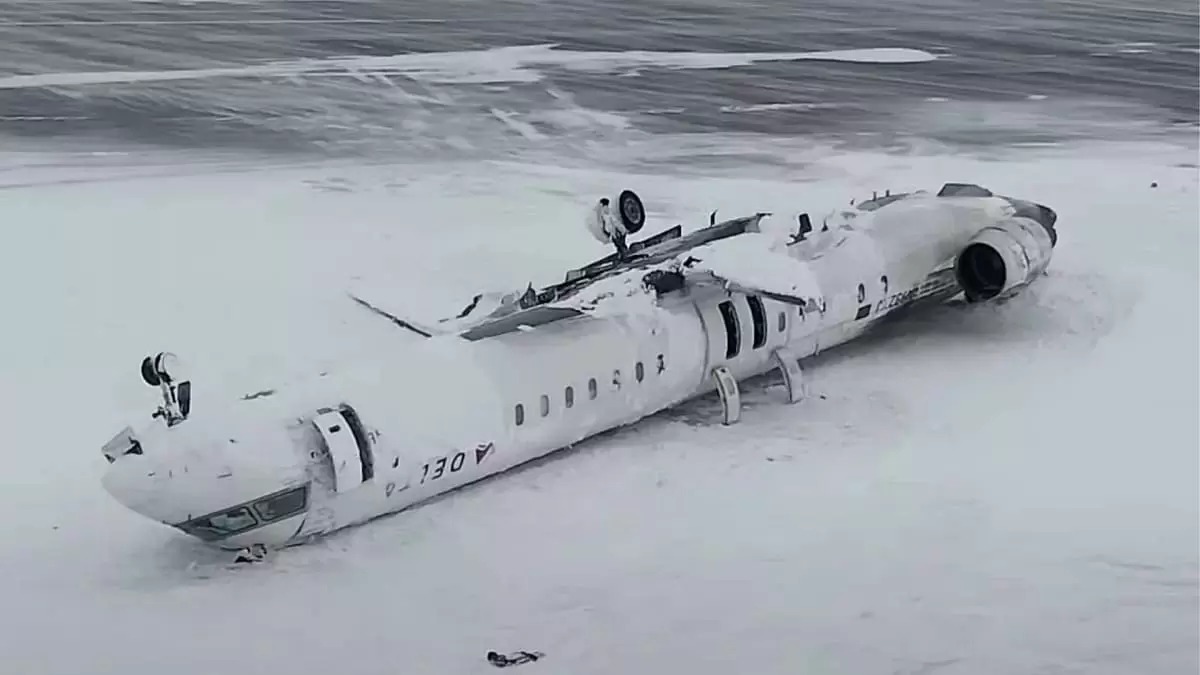New Delhi: February 17, 2025 saw a Minneapolis-Toronto flight operated by Delta Air Lines hit a catastrophic landing at Toronto Pearson International Airport. A Bombardier CRJ-900 belonging to Endeavor Air crashed into the airport under heavy winter conditions as it came in, overturning the aircraft and engulfing it in fire. All four crew members and 76 passengers aboard miraculously escaped death with only 21 suffering injuries from which they required hospital treatment.
In return for the accident, Delta Air Lines has provided a goodwill payment of $30,000 per passenger. This payment, which amounts to about $2.28 million, is meant to help passengers recover and is given without any stipulations that would influence their right to seek further legal action. Delta spokesperson Morgan Durrant underscored that the payment is “no strings attached and does not impact rights.”
In spite of the monetary compensation, lawsuits have been initiated. Passenger Marthinus Lourens has sued Delta and Endeavor Air for negligence and is seeking more than $200,000 in damages for physical and emotional distress suffered in the crash. The lawsuit invokes the Montreal Convention, which covers airline liability for passenger injury.
The accident has also highlighted the experience levels of flight crews in the face of a worldwide shortage of pilots. The co-pilot, Kendal Swanson, aged 26, had been trained less than a year earlier and had less than 1,500 hours of flight experience. Rumor is that she might have been flying the plane under the difficult landing conditions, with heavy crosswinds and snow. This has created doubts about airline recruitment policies and the sufficiency of training for less experienced pilots.
Aviation specialists attribute the high survivability in this accident to contemporary design of aircraft and the swift reaction of the crew. Today’s aircraft are designed with safety measures like detachable fuel tanks within the wings to avoid explosions and seats that can absorb heavy impacts. The strength of the aircraft structure, in addition to the crew’s swift and composed evacuating mechanisms, contributed significantly towards the survival of all on board.
The Transportation Safety Board of Canada and U.S. authorities opened an investigation into the crash. Weather, pilot error, or mechanical failure have been considered so far. There was no particular concern about experience on the crew’s part as all pilots train for such a situation, the Delta CEO replied.
Passengers described terrifying moments after the crash. Survivor Nate Richie explained the terror as the aircraft slid inverted along the icy runway, remembering the explosions and fire. Although sustaining head and neck trauma, Richie said he felt relief at living but recognized enduring emotional distress.
Legal experts recommend that passengers seek consultation with aviation lawyers prior to settling for Delta’s goodwill offer to keep their rights for further compensation intact. The Montreal Convention allows passengers to pursue further legal proceedings despite any pre-emptive payments made.





